Anne: How many years were you locked up?
Ant: 20 years, since I was 16 years old. I was so young.
Anne: I can’t even imagine what that was like.
Ant: Yeah, emotionally, I was a wreck, but externally I was the toughest person you probably ever wanted to run across. I was putting on this facade because I had identity issues.
Anne: Tell us about your transfer to San Quentin in 2012.
Ant: I was originally sentenced to 102 years to life for a crime I committed at age sixteen. Things really started to change for me when I was transferred to San Quentin in 2012. Moving to San Quentin was a very good thing. I was taking programs, classes and working hard. I also worked in the hospital from 2013 until I was released. I oversaw the Covid Strike Team. I was also the lead janitor in the mental health unit. I am certified in OSHA rules and was also the head hazardous material expert. Then, a new juvenile law took effect.
Anne: Ah, did that help?
Ant: Well it didn’t in the first board hearing, but because of the work I started to do at San Quentin, Governor Jerry Brown commuted my sentence. He is the best and I wish he was still Governor. It took you so long to get out, then he commuted it to 19 years to life. The board taught me a few things about myself that I took to heart. I respected what the board had to say, and I followed their recommendations. They felt I needed to be clean longer than four years and that I didn’t go far enough into the causative factors of my crime. I respected their truth. I had committed the crime because I wanted to be tough, not because I was embarrassed or humiliated, and I didn’t understand that until the Parole Board pointed it out to me. I was still trying to act in the old masculine way. I got a three-year denial, knuckled down, and worked on the areas I needed growth in. I learned from that experience and changed my narrative. The second time I went before the board was December 17th, 2020. When I heard I was approved, it confused me because I believed I was denied. I wanted to cry when I finally heard I’d been approved. I was so surprised because I had just got written up for getting on the phone without permission that July, but my attorney said it wasn’t a nexus to my crime. In part, I was approved because of all the letters of support I’d received from correctional officers, doctors and nurses in the prison hospital. They wrote to the board explaining how much I’d changed, the level of growth they had witnessed and my maturity. That’s a huge reason I was approved, it set me apart from my write-up. Change is not just flipping a light switch it’s a process. I admitted I had been impulsive, and I also stood up for myself, not in an argumentative way but as an advocate. It’s called rehabilitation, not rehabilitated. I will always be moving forward, learning about myself, and working towards a higher level of maturity. This is my lifelong journey.
Anne: Tell us about what was going through your head after you learned of your release?
Ant: Well, being only sixteen, I had to learn how to shave in prison, to think for myself, to stand up for myself. I learned how to grow up in prison. And as I walked out of the hearing that day—the sky was blue. I could breathe easier. I went and called my Mom. She started screaming. The feeling was indescribable- like being on a high better than any drug. What was cool was that she saw me struggling all those years to do the wrong thing and now she had watched me as I struggled to do the right thing. I started thinking about how prison is done in three phases. How am I going to do my time? Learning the politics of prison which took years- especially at 16 years old, as a child. Stage two, I had hope I would go home, but I was also like who cares, I’m never going home. At the same time, in the back of my mind, I had a tingle of hope. I started going to groups, working, and believing in myself. Then I was found suitable. I was walking on eggshells. I knew I couldn’t get a write-up. I wasn’t sleeping, and I would just stay in my cell except for showering. So much emotional stress. Was the Governor going to deny me? I was finally released on April 22nd, 2020
Anne: What were your duties, and your job in the hospital again, and can you still use those skills?
Ant: I was the head of the strike team when the coronavirus cases appeared in San Quentin. happened. We went and cleaned all the cells after any coronavirus outbreaks. That was part of my duties. My other duties were working on the mental health floor. I was a lead, a janitor, making sure all the restrooms were clean, coming up with agendas and schedules, for rooms to be cleaned and talking to them. I worked there from 2013 until I was released. I want to use those skills out here because I am trained. I want to use that. I also want to help kids and try to open the door for them to understand their emotions and their feelings so that they won’t make the same mistakes. Crimes are committed when they don’t understand what self-worth is. I think that’s what I’m going to do, I want to go to school and get my degree, so I can be certified. Hey, I got experience!
Anne: After you were approved for release were you worried about them rescinding your approval at all?
Ant: Yes, there is a guy named White Eagle in there. After 45 years in prison, he has been found suitable. And because of the victims’ family push, which is their right, they took his name. They showed up every time, like 11 times. On his way to be released, it was taken back. There’s another guy, a lot of people don’t like to say his name, Bruce Davis. He’s Charles Manson’s guy who drove the car. He has been in prison for 50 years. He’s been found suitable six different times for release. Those guys are not getting out. It’s like the Manson girls, they’ll never get out and I mean they’re never gonna get out, and they were just kids. That happened to Bruce Davis as well. He’s a really good dude! They interviewed him, did you see? Documentaries, Manson Charles Manson on Netflix. One of the kindest people you’ll ever meet. It’s so political though.
Anne: That makes a lot of sense. Can you tell us anything about the day of your release?
Ant: The correctional officer comes to my cell at 4:30 am. He says get ready, I’ll be back in 30. I was like, is this real life? I felt like I was in a dream and I’m praying I don’t have to wake up. I got dressed and I’m saying bye to the guys. It was hard because I was leaving behind a lot of good guys who also have earned their way to get out. I don’t say deserve because deserve is not something we should have because of the crimes we committed. So a lot of guys have earned their opportunity to go home as well. I feel this sense of sadness and gratefulness that I was the person that could go out and hopefully represent them. I went to R&R and put on my dress-outs that my Mom sent to me. The van comes, I get in and start tearing up because it’s getting real. My heart’s racing, I’m sweating. I can see the water in the bay as the gates open. There were so many people waiting for me. Family and friends, Rasheed, and James King. My brother who’s been my rock. My Dad and Mom. I’m so excited and nervous. It was a blessing. I realize If I hadn’t been caught at 16, I would have gotten worse. I had been in an identity crisis. I was playing sports- basketball- but I never saw people in the stands. I found acceptance in the streets in a gang. I joined up by the time I was fourteen. I got into the car with my brother, and we went to some restaurant, whose name I don’t recall. I do remember the meal: bacon, eggs, French Toast, sausage, orange juice and coffee. I didn’t even taste it, I just scarfed it down. It felt strange being in a restaurant. I sat with my back against the wall. I felt worried and paranoid and believed the prison made a mistake and was going to come in and take me back. It was chaotic. Sensory overload. Being in the car driving under the overpass gave me an anxiety attack. I went to Costco and it was overwhelming. Too crowded, people were bumping into me, which is a sign of disrespect in prison. Then I went into Starbucks and didn’t know where to go, what to do. Then it came to me— I need to ask for help. I asked if I had to pay for the drink and was told no, then the cashier forgot my order and I had to go back in again. I apologized to her and let her know I’d just been released from prison. She was so helpful. She had sympathy for me and was kind. It pays to be honest. Next, I went to see my parole officer (PO) and then straight to the house. My PO is cool. A straight shooter, he said if there is an issue just talk to me. He’s helping me get a state ID. The problem was I only had my prison ID and it has my wrong birthdate on it. It took three weeks to get an ID and it still has the wrong birthday on it, because when I got arrested, I lied about my date of birth. I wanted to be in an adult prison, not in juvie. I’m still waiting on my birth certificate.
Anne: You spoke of wanting to go to college at one point. Is anyone helping you with the college process?
Ant: There’s supposed to be a new college program that helps me pay for college. I think Google has a program that I can apply for. I don’t know if you guys know Richard Richardson? He knows some people that are signing up for free college, which is helpful. He’s going to help me set that up. Right now I’m just going on YouTube looking at English classes, trying to improve my spelling and grammar. . Trying to learn the basic steps. I’m not good at writing. I’ll write a letter and there will be no punctuation in it. Reading is another story though.
Anne: Do you enjoy reading?
Ant: I do enjoy reading. I haven’t picked up a book since I’ve been out because I want to see and do everything. Reading is the best way to learn. I like getting lost in books. Before I left, I read this book by Elaine Brown. She was the only woman that was in charge of the whole Black Panther organization! A lot of people would never know that unless you read a book and it’s it. She was Cleveland’s girlfriend. She’s still alive to this day. Her book amazed me.
Anne: After being released did you find it hard to change habits or routines? Do you still wear shower shoes?
Ant: No, I’ve just started changing that. In prison, I showered with my boxers on and I had to tell myself that I don’t have to do that anymore. I struggle with waking up early. I’m up at 4:00 am. I also struggle with sleeping in a bed. I struggle with whether I should spit in the toilet or the sink when I brush my teeth. It’s like I’m trapped in between some moments. I’ll spit in the sink because I’m here. In other moments I’ll spit in the toilet because I’m overthinking it. I’m still stuck in that psychological frame that it’s a negative fit.
Anne: How come you couldn’t spit in the sink inside San Quentin?
Ant: We cookout of the sink and wash everything in it. So every prisoner knows that’s a rule, to spit in the toilet. The sink needs to stay clean. I am getting used to using metal silverware as well. I still prefer plastic and a disposable plate. It feels weird just the other day I heard some metal dropping and I hurried up and looked down thinking it was a knife or something. It’s PTSD, a survival instinct. The state offered me mental health treatment and I am going to take it. I never took it inside because of the stigma, now that I’m out I want the help. At first when they asked me if I wanted help, and I’m like, no, I don’t think so. Then, my girlfriend who worked in the psychiatric field in Orange County jail told me that it wouldn’t hurt. It won’t stop me from getting a job, it’ll just help me communicate.
Anne: That’s great! All support is welcome! Do you have to meet with your parole officer more?
Ant: Because I was a lifer and committed murder, I’m considered high risk. I see my parole officer twice a week. I believe my parole is for three years. Coming home was earned and not deserved. A validation that I am not the worst moment of my life. I am a pretty good human being although I committed a heinous crime. For the rest of my life, I will live and breathe for my victim; always strive to be a better person. I am here to give back. I am learning how to be attentive and how to cope, to be present and be included. I don’t want to digress when I feel overwhelmed. I’m learning how to be in the present. To converse with my roommates, not to just look at my cell phone and go into myself. I’m exploring my surroundings. I’m learning how to use public transportation. I run every day and play basketball with the guys that came in and played basketball in San Quentin. I was on the poster for the movie ‘Q Ball.’ I’m in a relationship and learning that communication and vulnerability are key to having a healthy relationship. I can’t just make decisions for myself anymore which was confusing to me at first. I’m learning how to be considerate and to think of the other person. I’ve changed the narrative and realized she is there for me. She is not judgmental. She loves me, for me, and that feels good. I want to work on my ‘Emotional Intelligence.’ I’d like to go back to school to get a counseling degree. I want a career working with kids that are angry- to help them understand their underlying components.
Anne: Speaking of support, is your family nearby?
Ant: No, all my family’s in LA. I chose to stay here so I can figure out who I am as a person and who I am as a man. I want to transition without a crutch. Even though I love them, I have to make my own path.
Anne: Where do you live now?
Ant: Oakland, California and it’s amazing. I went Kayaking and fell in three times! I can’t even be upset just to be in the water was beautiful! I like the weather, I can kayak or take a walk. Even though my fear of trying new things is there, I was like why not experience kayaking. I have great memories of that day, being out on the water.
Anne: Are you close with your Mom?
Ant: Yes, we text every day. She worries about me like Moms do.


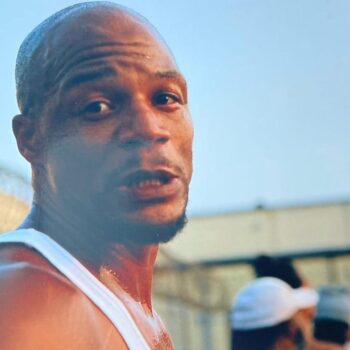
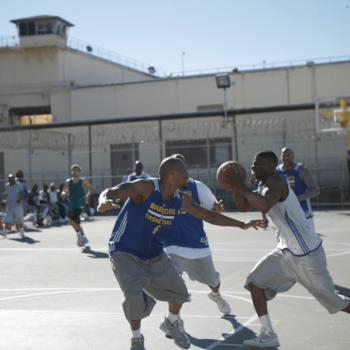
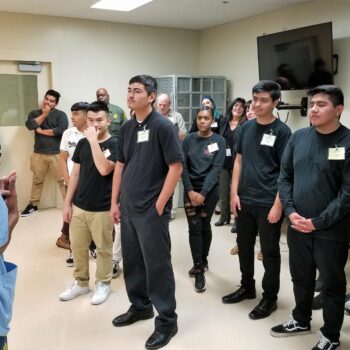

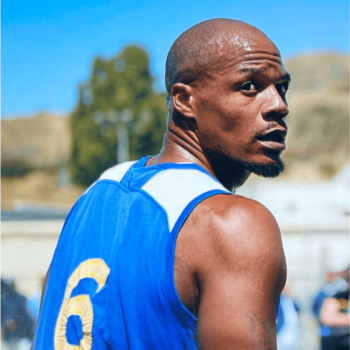
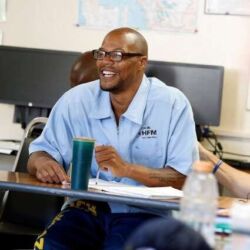
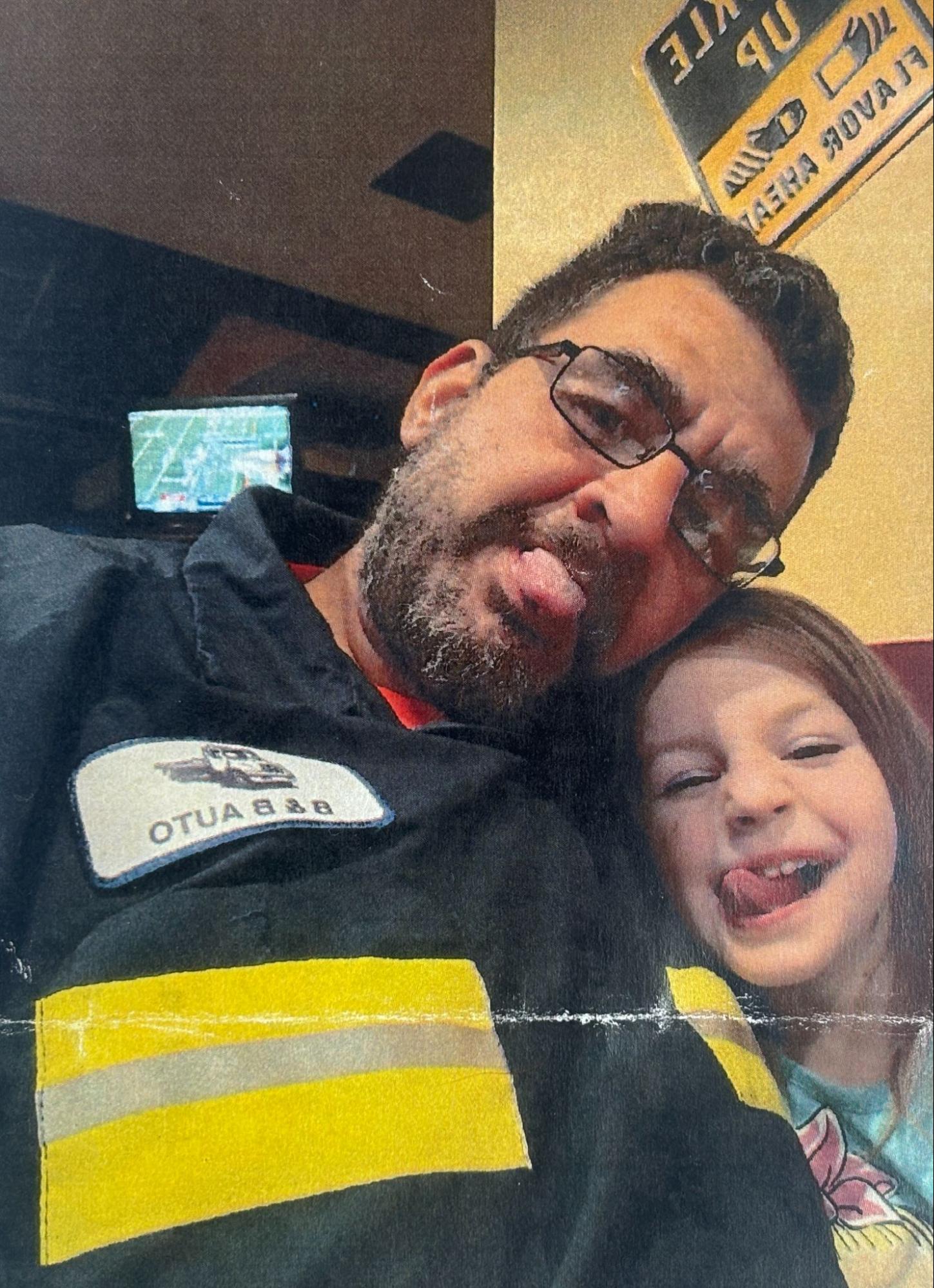
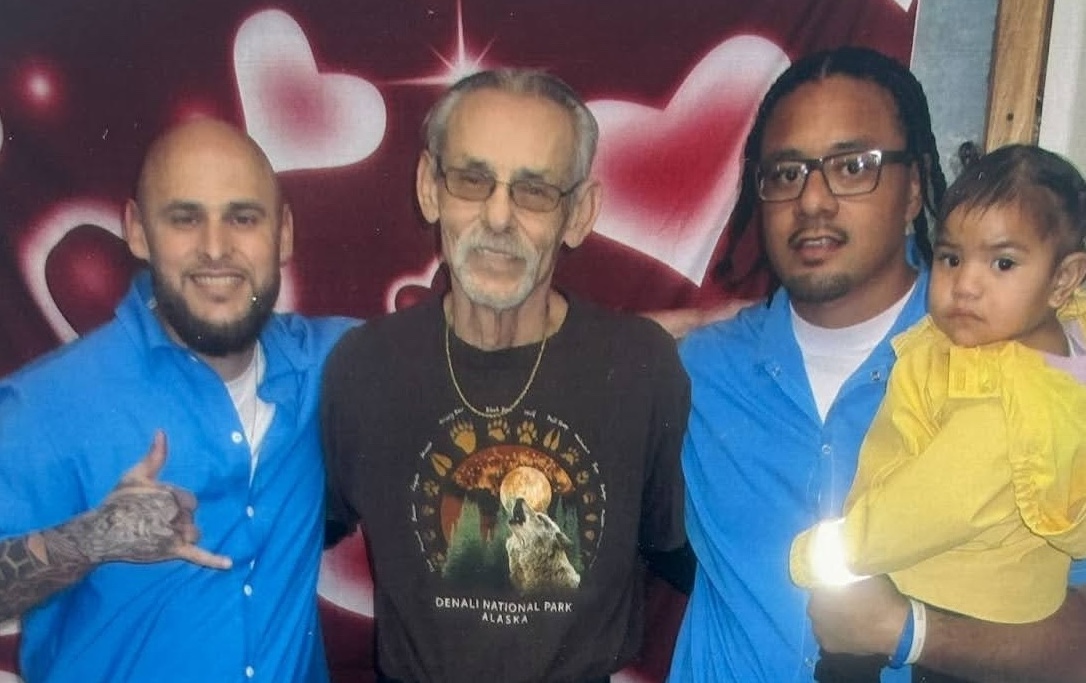



He can definitely have a business in motivational speaking, all youth can learn something from him.
I sat next to you on the train